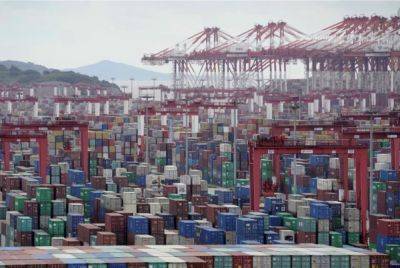Debunking China’s overcapacity myth
During the past four years, China shifted the preponderance of its exports to the Global South away from developed markets, and at the same time built production facilities across the Global South that re-export to developed markets—circumventing America’s 25% tariff on most Chinese goods and other developed-market trade barriers.
There must be some devilry behind China’s export achievement, according to the dark murmurings of Western economists: China is in deflation, so it’s selling goods on the cheap.
“Foreign officials worry about a repeat of the China shock of the early 2000s, when pro-market reforms in China and its entry into the World Trade Organization fueled an export boom that was a boon for consumers but crushed competing industries in the US and elsewhere,” warned the Wall Street Journal on May 4.
The yuan’s real depreciation “is clearly contributing to higher exports” from China,” said Krishna Srinivasan, director of the Asia and Pacific department at the International Monetary Fund, told the WSJ. Real depreciation means that after inflation, the currency has become cheaper.
The trouble with this argument is that China’s real effective exchange rate (its exchange rate adjusted for inflation) has risen rather than fallen, according to the Bank for International Settlements, from an index level of 50 in 1994 to a level of 90 today. It fell during the past two years but not nearly as much as the Japanese yen.
Moreover, Japan’s exports stagnated despite the sharp fall in its inflation-adjusted exchange rate, while China’s leapt. That’s an appropriate comparison because China and Japan compete directly in the world’s largest industry, namely automotive.
China exported 5.22 million passenger cars in 2023, a 57%







